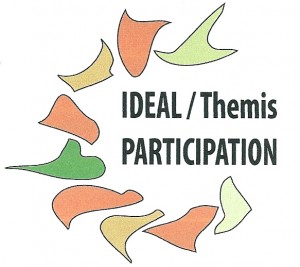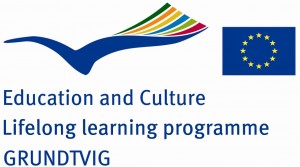 Integrating Disadvantaged Ethnicities through Adult Learning
Integrating Disadvantaged Ethnicities through Adult Learning
IDEAL is an efficient and effective participatory method for enhancing active participation in society. Starting point is the existing mindframe of the participants. Careful awareness raising processes bring about sustainable attidudinal changes through strengthened self confidence and self esteem: from passive and withdrawn to proactive behaviour, in coherence with an improved understanding of effective communication and of parenting in a modern and democratic European context.
IDEAL has been a multilateral Grundtvig project under EU’s Lifelong Learning Programme (LLP). IDEAL was partially funded by the EACEA (Education, Audiovisual and Culture Executive Agency), and implemented between 2011 and 2013, with pilots in Copenhagen, The Hague and Malmö. EACEA evaluated the IDEAL materials as being of a high quality. The original Dutch version of IDEAL (Themis, since 2002) is positively evaluated and included in the databases of Dutch research institutes (Movisie, NJI and Verwey-Jonker Instituut).
The participatory psycho-social Themis method, established in the Netherlands in 2002, is explicitly inspired by well-described and successfully implemented approaches in developing countries (Reflect, Graap, Training for Transformation, etc.), and on experiences on enhancing emancipation in Europe (Goldstein method for instance). Paulo Freire has been the main inspirator for Themis. Themis makes use of:
- subjects that are related to the mental framework of the participants
- awareness rising via drama, role plays, debates, creative exercises, guided fantasies, relaxation and concentration exercises
- memorisation techniques and subject analysis by an extensive use of pictogrammes which are appealing to the learners
- the mother tongue as a starting point in each subject, the target language being introduced gradually via subject related language exercises
- similar background / same sex role model facilitators
IDEAL is a programme, based on the participatory pedagogical method Themis, which is characterised by its use of creative sense-activating didactic tools, a semi-structured curriculum, and a mother-tongue-based dual language approach.
The method appeals to several senses: the cognitive, visual, auditory, kinaesthetic and communicative. The programme uses pictograms for memorisation purposes, in combination with focus group debates, role plays, guided fantasies and many other activating didactic tools. Out-of-the classroom activities are organised as well, like using public transport, a visit to a library, education at a health centre, or talks with teachers at a school.
This Themis approach, aiming at active participation and empowerment, is different from traditional, literacy-based language programmes: in Themis empowerment and participation are the goals, with language acquisition being one of the means towards the achievement of these goals. By using role model teachers / facilitators with a similar background as the participants but being well educated, and mother tongue based education for awareness rising, Themis creates a safe and conducive learning environment. The participants are invited to take their own experiences and perspectives as a starting point, to define their own needs, while acquiring new attitudes, skills and knowledge. With the participants taking gradually control over their own lives (ownership), the approach is truly empowerment oriented.
IDEAL can be adapted to different populations and target groups.
IDEAL has been a multilateral Grundtvig project under EU’s Lifelong Learning Programme (LLP). IDEAL was partially funded by the EACEA (Education, Audiovisual and Culture Executive Agency), and implemented between 2011 and 2013, with pilots in Copenhagen, The Hague and Malmö.



